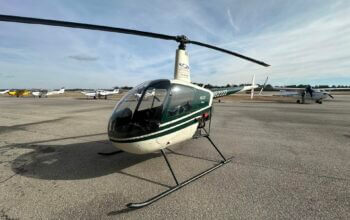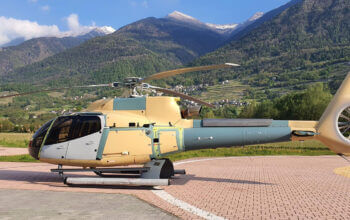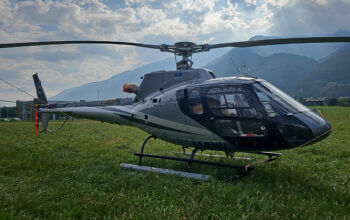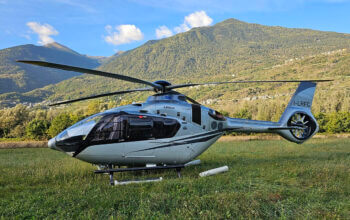Estimated reading time 6 minutes, 56 seconds.
Huge cuts in Transport Canada’s in-house flight program have meant that many federal aviation inspectors are not current in the aircraft they oversee, a shortcoming their association says presents a clear and present danger to public safety.
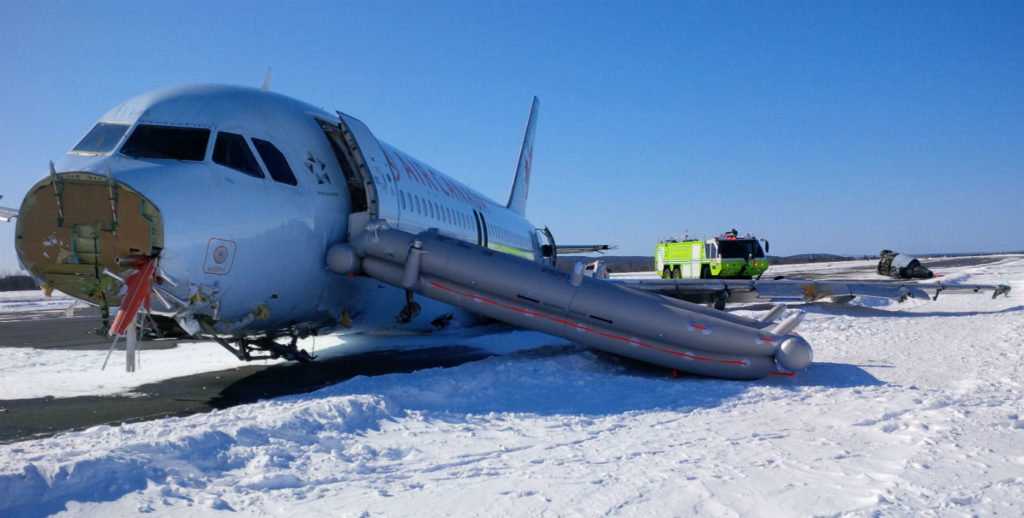
Greg McConnell, national chair of the Canadian Federal Pilots Association (CFPA), confirmed the funding cuts and currency issue at an April 3 news conference on Parliament Hill, a day before the House of Commons Standing Committee on Transport, Infrastructure and Communities began looking into aviation safety in general.
He said a survey of his membership by Ottawa-based Abacus Data had revealed “broad concern about recent cuts to aviation safety oversight and an ominous sense that a major aviation accident in Canada is likely in the near future.”
A total of 243 pilots completed the survey (96 per cent work at Transport, the rest at the Transportation Safety Board) representing a response rate of 64 per cent.
“Where once Transport Canada’s licensed pilots routinely flew aircraft in the course of completing their duties, Abacus found that many of the regulator’s licensed pilot inspectors have been grounded for years,” McConnell told reporters, adding that it was simply due to budget cuts.
He explained later that $8 million set aside for inspectors’ currency training in the department’s budget in the 2008-2009 fiscal year “dwindled down to $3 million” in 2016-2017. The latest slide began under the former Conservative government but he said the pattern dated to other administrations over several decades.
“When the department seems to think it needs money, even going back to the 1970s, it seems they’ve always focused in on reducing flying training for the inspectors.”
He also told Skies that Transport had “sold off quite a few aircraft in 2012 and it continues to sell off aircraft, which makes it difficult for the inspectors to keep current.”
McConnell added that inspectors in Alberta had no fixed-wing or rotary-wing aircraft available. When asked whether leasing or chartering them on an as-needed basis rather than maintaining an in-house fleet might be the solution, he said the department has “not been very receptive” to CFPA proposals along those lines.
“A number of years ago, Cessna . . . wanted to replace the whole Transport fleet with Cessna Mustangs but that didn’t go. There’ve been many different things proposed, but I think they just choose the path of least resistance and cut and cut and cut.”
McConnell, who joined Transport in 1992 and who has “pretty much flown the gamut from bush [he still flies bushplanes in summer] right through to captain of a CARs 705 aircraft,” said the CFPA warned the department in 2012 that it would be “in a real bind” in five years.
“Guess what; it’s 2017!” Pointing out that “flying is a skill that atrophies,” he said a quarter of Transport’s inspectors had not flown enough in at least four years to remain current. Some hadn’t flown in more than a decade, a situation he suggested violates International Civil Aviation Organization standards.
“At least one quarter of the inspectors who are supposed to be pilots do not have valid licences. . . . If our inspectors don’t know how to fly the aircraft they are supposed to inspect, they simply will not know if the aircraft are operating safely.” He said it’s akin to a traffic cop who can’t drive a car.”
Transport Canada, which states on its website that it “continues to . . . inspect major scheduled and charter airlines, other types of air operators and air navigation services,” had not replied by April 4 to a Skies request for comment.
But the way the department does most of its inspections, using safety management systems (SMS)–which effectively delegate responsibility for monitoring performance and risk levels to operators–is evidently causing an “administrative burden.” McConnell said SMS paperwork keeps inspectors office-bound instead of out in the field.
He said the most “sobering” element from the survey is the prevailing fear of an imminent disaster, a fear he said isn’t new. “In April 2014, we asked CFPA members the same question . . . and the results mirrored today’s finding. Less than 12 months later, Air Canada 624 crashed on approach to Halifax International Airport.”
[The crew of that Airbus A320-200 on a flight from Toronto encountered heavy snow and poor visibility just after midnight on March 29, 2015. It landed 225 metres short of the runway threshold. Air Canada initially called it a “hard landing” but the aircraft was written off.]McConnell said the five crewmembers and their 133 passengers had survived “only by the grace of some greater force.” Twenty-five persons, including the two pilots, required hospital treatment for non-life-threatening injuries. “We should not be relying on dumb luck or divine intervention to ensure aviation safety . . . yet that is exactly what is happening today as regulatory oversight is dismantled piece by piece.”
He said the Transportation Safety Board (TSB) has linked the department’s policies to incident and accidents, telling Skies that more than 50 TSB safety recommendations, some outstanding for more than a decade, haven’t been acted on by Transport.
He cited an October 2016 comment by TSB Chair Kathy Fox in which she said that without a “significant overhaul” in Transport’s oversight and how companies prove their procedures are working, “this issue is unlikely to go away anytime soon.”
“Gone are the days of unannounced in-person inspections or even regular inspections, thanks to Transport Canada’s singular mission to audit companies’ SMS paperwork,” said McConnell. “For many operators, we simply cannot verify they are functioning safely because we really can’t look at their operations. We just don’t know. . . .
“It’s fine to require airlines to have their own safety programs and systems but Transport Canada needs to continue to serve the public interest by ensuring compliance with safety requirements and enforcing those requirements when need be.”




